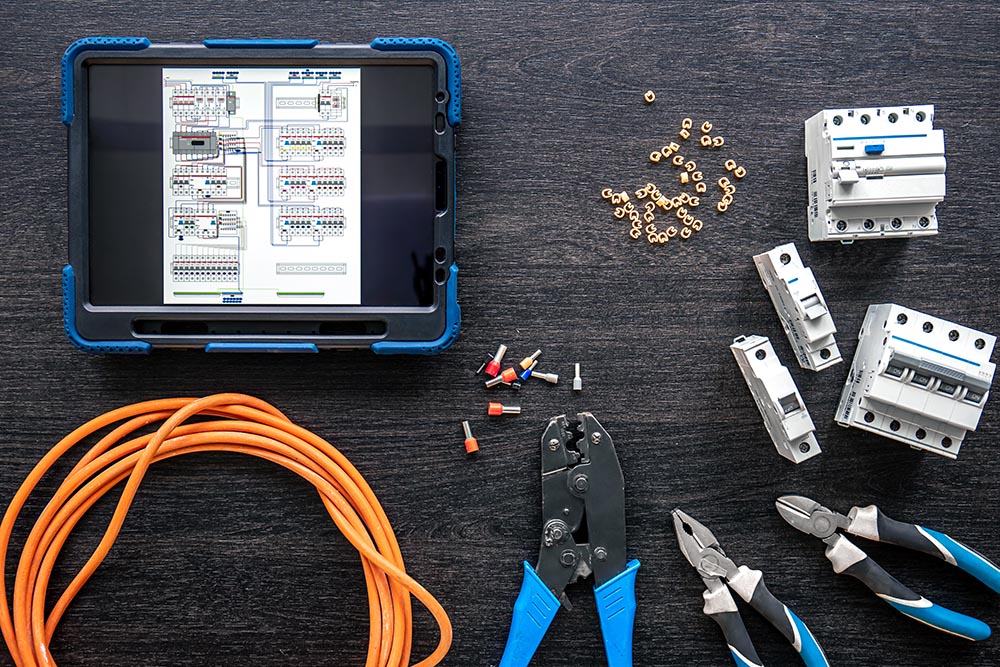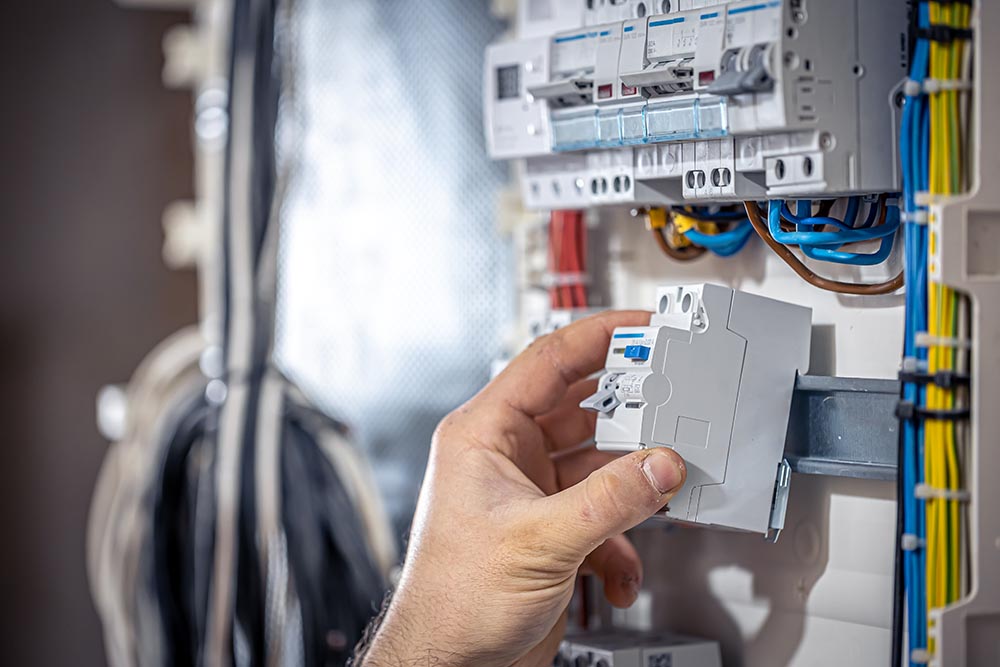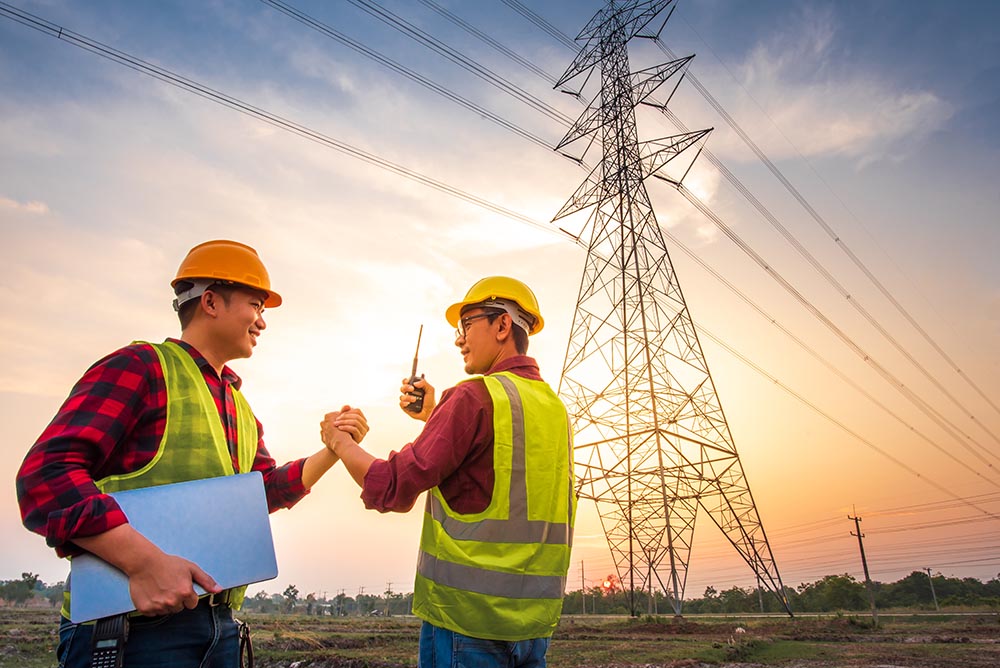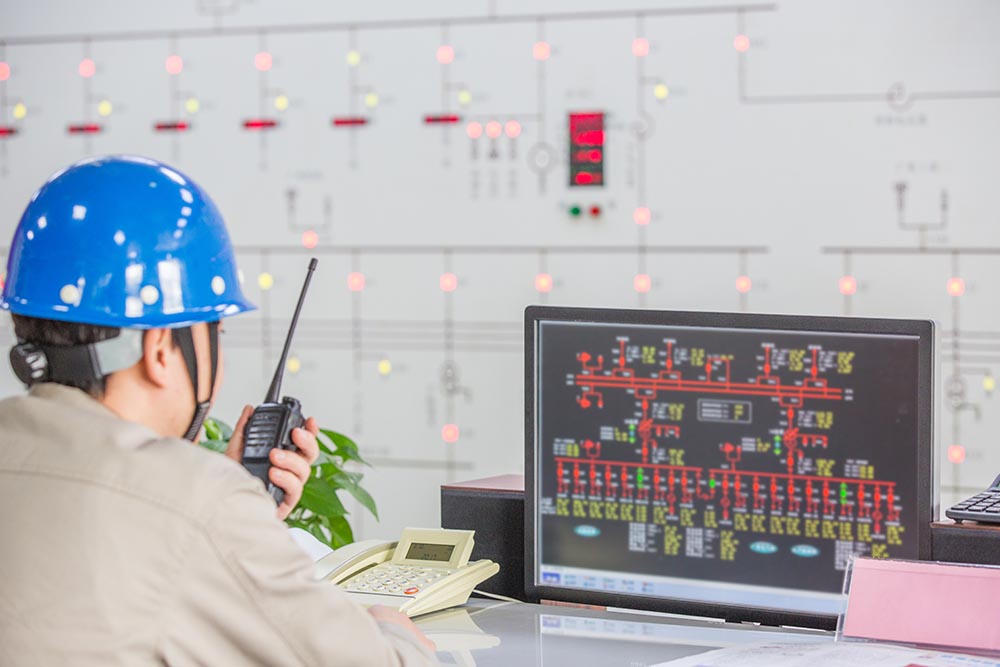As a Dean at a university, simply hiring any professor for any job wouldn’t work. There is no point in getting an English professor in when what you actually wanted was a professor of nuclear physics. This works much the same with many professions, including doctors and, as we focus on in this article, electricians.
If you are looking to hire a professional for electrical contract work, it is important to know the various options available. Here we will take a look at the differences between commercial and industrial electricians to help you understand these variations and find the right person for the job…

What is electrical contract work?
While it can sound a little complicated, electrical contract work is basically the work carried out by qualified electricians. Electrical contractors can be the electricians themselves, but can also refer to the company that employs them to carry out the work.
When we talk about electrical contract work in general, we mean the work that electricians are tasked to carry out. This includes jobs like:
- Designing electrical systems
- Installation
- Maintenance
- Ensuring these systems are safe and effective
- Working with high voltage systems
- Working with low voltage systems
- Working at different locations and so on.
There are many jobs that classify as electrical contract work, and an electrician could carry out any one or all of these depending on their skill set and responsibilities. That being said, there are classifications of electrical contractors, including industrial, commercial and domestic electrical contracting. The former two of which we will go into below.

What is commercial electrical contracting?
When we talk about commercial electrical contractors, we mean the electricians and their employers that work in the commercial sector. That generally means people that work in non-residential places that are still open to the public. This can include:
- Restaurants
- Offices
- Shops
- Business spaces and much more.
A commercial electrical contractor may work for a larger company, or may be employed directly by the commercial property itself. Many businesses will have their own onsite electrician to deal with anything from light fixtures to serious issues and maintenance. The role tends to be fairly wide and encompass lots of tasks in any given property.
Some of the main jobs you may expect a commercial electrical contractor to carry out include:
- Designing electrical systems
- Building these systems
- Working with building owners to create the best electrical systems
- Ensuring everything is up to code
- Maintenance of various systems
- Installation of equipment
- Rewiring
- Repairing systems
- Training, working with or leading a team

What is industrial electrical contracting?
Industrial electrical contracting also focuses on businesses rather than residential work. While there are many similarities to commercial electrical contracting, there are several differences as well. Industrial electricians usually work in places that the public don’t tend to go to, only employees and authorised personnel. These places include:
- Factories
- Plants
- Mines
- Farms
- Construction sites
- Industrial sites
- Electrical firms
- Car manufacturers and much more.
The location is not the only difference between these two types of electrical specialisation, however. Industrial electrical contractors tend to work with far more complex and specific machinery, which can also be more dangerous.

They may work in hydraulics, or with large farming equipment. They may work with robotics or manufacturing equipment. The tasks involved can include many that commercial electrical contractors do as well. They may not do everything that commercial electricians do each day, but will do many of their own tasks as well. Some of these include:
- Knowledge of the specific machinery and equipment in their industrial field
- Repairing all kinds of equipment
- Installing electrical systems
- Installing machines
- Maintaining devices
- Carrying out safety checks
- Repairing and restoring any equipment that might have problems
- Working with a range of voltages and currents
- The ability to work with a high degree of accuracy on any issue that may arise
As you can see, industrial electrical contractors may require that you know all there is to know about farming equipment, or robotics, or hydraulics. Even within this field, there are still further specialisations to be found. You may need to know more about one industry than another, and how to operate in certain locations or particular situations.
To become an industrial electrical contractor can require much more training than to be a residential or commercial electrician. They need an enhanced level of expertise to work with systems on an industrial level, and with such potentially hazardous voltages and equipment.

So, what is the main difference?
Hiring an electrician isn’t the same as hiring a handyman to help you with home repairs. It is essential that you hire a company or individual that can specifically meet your electrical contracting needs. Both commercial and industrial electricians will have the basic knowledge and skills of any professional working in the field, and there are plenty of areas in which the jobs will cross over.
The main difference is that industrial electrical contractors tend to work with more specialised equipment in situations that can be more machine-focused. They must have the knowledge to troubleshoot, maintain and repair complex and intricate machinery, and work to keep their factory, mine or farm running smoothly.
Commercial electrical contractors, on the other hand, tend to have more of a focus on setting up and maintaining electrical systems in buildings. They still check the safety of systems, install, maintain, rewire and carry out much of the same work, just in a different location and often on a different scale.

Final thoughts
It may still seem that most electricians carry out similar jobs. They undertake similar training and have to understand the inherent dangers of electricity. They work to certain safety standards and ensure that any work they carry out meets these standards too.
This may be true in most areas, much like any doctor will know the basics of healthcare. That doesn’t mean you shouldn’t opt for the specialist in the area you require expertise in when you need it. For the tasks and circumstances that are not quite the same, it is good to know the differences between commercial and industrial electrical contractors, and which is best suited to your needs today.

